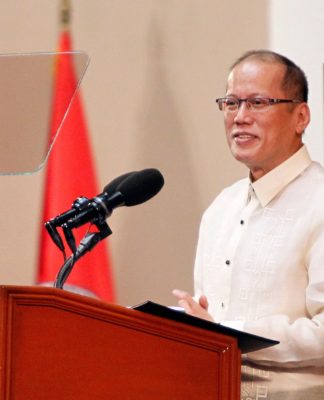IN CELEBRATION of 400 years of Catholic education in the country, the president of the Catholic Bishops’ Conference of the Philippines (CBCP) issued a pastoral letter reminding Catholic schools to “go, make disciples, baptize, and teach.”
“Without doubt, Catholic education in the Philippines has a long and rich history. It is not an exaggeration to say that Catholic education has the foundations of education in our country,” said Cebu Archbishop Jose Palma, CBCP president.
However, Palma noted that the postmodern age is marked by growing secularization, which, he said, threatens the evangelizing mission of the Church.
According to the Catholic Education Research Center’s website, secularization is the loss of religious consciousness in the growth of democratic society, the separation of Church and State being a factor.
“With the increasing secularist and pragmatic mentality, Catholic values are no longer seen as relevant by Catholic families. These economic and cultural factors put many Catholic schools in a dilemma as its survival is threatened,” said Palma.
The pastoral letter also stated that technology is rapidly changing and affecting society, especially the youth.
“Our grateful recollection of the grace of four hundred years of Catholic education is an opportune time, not to withdraw, but to rediscover once again the original mission of the Catholic schools,” Palma said. “This fervent renewal is a rediscovery of the ideals of Jesus. This calls us to make saints of our students.”
Palma added that Catholic education has produced many national heroes and significant personalities in history. “Innumerable are the products of Catholic schools who have served the country and the Church,” he said. “[Catholic education] has been a major contributor to the professional sector of our country. It is not surprising that quality education is almost always appended to Catholic schools.”
Pioneers of Catholic education
Dominicans played a big role in the history of Catholic education in the country. Palma noted that Archbishop Miguel de Benavides, O.P. established UST in 1611. The Dominican Order put up the Colegio de San Juan de Letran in 1632.
“We rejoice with UST, the oldest University, in the celebration of its four hundred years of continued existence and service in the field of Catholic Education,” said Palma, a UST alumnus.
In an interview, Dominican historian Fr. Fidel Villarroel, O.P. said the establishment of UST had significance for the continent.
“UST was established in the 17th century which was the period of evangelization. The establishment of UST was not only important for the Philippines but also for Asia,” he said.
Augusto de Viana, chairperson of the Department of History, noted that universities established earlier, such as Colegio de San Ildefonso, were also recognized by the CBCP pastoral letter. However, these institutions are long gone as the Jesuits were forced to leave Spanish dominions in 1768.
“UST is a survivor. In spite of the pressures of history—the invasions, calamities, social movements that could have erased it—UST remained. It did not just survive, it even flourished,” De Viana said. “It is still very strong, very thriving; what is better is, we are spreading the virtues of Catholic Education.”
During the 19th century, secularization started around the world, resulting in God being no longer the center of universe of man, De Viana said. However, UST maintained its Catholic tradition despite the spread of secularization.
“[UST contributes] by infusing Catholic virtues and also making known its stand on society’s issues. So it’s combining what you call religious principles with enlightenment, which is good because enlightenment without any religious bearing is nothing,” he said.
Catholic identity
Last May 5, the Pope stressed the need to maintain the Catholic identity of the Church’s colleges and universities, as he addressed bishops from the United States during their annual ad limina visit.
But doing this requires not just having an office for the campus ministry, Pope Benedict XVI said.
“[T]he question of Catholic identity, not least at the university level, entails much more than the teaching of religion or the mere presence of a chaplaincy on campus. All too often, it seems, Catholic schools and colleges have failed to challenge students to reappropriate their faith as part of the exciting intellectual discoveries which mark the experience of higher education. The fact that so many new students find themselves dissociated from the family, school and community support systems that previously facilitated the transmission of the faith should continually spur Catholic institutions of learning to create new and effective networks of support,” he said.
Emphasizing the need for theology professors to adhere to the Church’s teachings, the Pope spoke of “confusion created by instances of apparent dissidence between some representatives of Catholic institutions and the Church’s pastoral leadership.”
“[S]uch discord harms the Church’s witness and, as experience has shown, can easily be exploited to compromise her authority and her freedom,” he said.
“[T]he essential task of authentic education … is not simply that of passing on knowledge, essential as this is, but also of shaping hearts. There is a constant need to balance intellectual rigour in communicating … the richness of the Church’s faith with forming the young in the love of God, the praxis of the Christian moral and sacramental life and, not least, the cultivation of personal and liturgical prayer,” the Pope said. Denise Pauline P. Purugganan and Gracelyn A. Simon

















